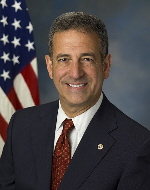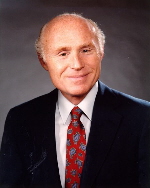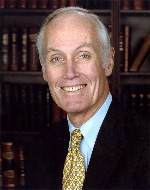Could Russ Feingold Win Herb Kohl’s U.S. Senate Seat in 2012?
Nineteen U.S. Senators have served both U.S. Senate seats from their state over the past 100 years including ten who (like Feingold) were previously voted out of office

“So, it’s on to the next fight. It’s on to the next battle. It’s on to 2012. And, and it is on to our next adventure. Forward!”
At the time Feingold delivered those remarks, some newscasters and political analysts speculated that he was perhaps laying the groundwork for a 2012 presidential campaign – challenging Barack Obama for the Democratic nomination by running to his left.
Despite legislating to the beat of his own drummer for his 18 years in D.C., the idea Feingold would launch such a bold primary run and buck his own party is not very credible (Feingold is no Dennis Kucinich).
But what is possible is that Feingold could mount a run for Herb Kohl’s Senate seat – provided the senior Senator from Wisconsin retires after his fourth term.
Which brings us back to Feingold’s concession speech statement. Does he know something about Kohl’s future that the general public does not?

Republicans will not enjoy the brisk partisan winds they had at their backs in 2010, and Kohl is not considered a particularly vulnerable senator.
And for good reason: Senator Kohl has actually increased his margin of victory in each of his three reelection bids: winning by 4.6 points over Susan Engeleiter in 1988, by 17.6 points over Robert Welch in 1994, by 24.5 points over John Gillespie in 2000, and by 37.8 points over Robert Gerald Lorge in 2006.
If Senator Kohl is going to retire, the longer he delays making that announcement, the greater the likelihood it keeps some potentially big GOP names out of the race – or at least delaying their candidacy (e.g. Congressman Paul Ryan).
By contrast, an early retirement announcement would attract a much more competitive GOP field for the open seat race.
Which brings us back to Feingold. It would be much easier for an established candidate and well-known commodity like the outgoing junior Senator from the Badger State to launch a senatorial campaign later in the 2012 election cycle than it would be for a lesser-known Republican to scramble and form a campaign if and when Kohl makes his retirement announcement.
Especially if he’s been tipped off about Kohl’s future plans.
Putting aside whether or not Kohl and Feingold have hatched such a plan to return Feingold into office, could Feingold – loser of Wisconsin’s 2010 Class III seat – win Kohl’s Class I seat in 2012?
There is precedent for such a successful run.
Smart Politics looked at the more than 900 general and special U.S. Senate elections and appointments since the introduction of popular vote contests 100 years ago and found there have been 20 U.S. Senators since 1914 who have held both of their respective state’s U.S. Senate seats.
Approximately half of these Senators ended their first go-around willingly – by retiring or resigning their seat – while the other half lost their reelection bid.
For example, Kentucky’s Alben Barkley and Minnesota’s Hubert Humphrey both retired to become Vice President of the United States (under Harry Truman and Lyndon Johnson respectively).
DFLer Humphrey had served the Gopher State’s Class II seat from 1949 to 1964 and was later elected to Minnesota’s Class I seat in 1970.
Barkley, also a Democrat, had served for 22 years in Kentucky’s Class III seat, only to return to the Senate by defeating Republican incumbent John Cooper for the state’s Class II seat in the Election of 1954.
Two current Democratic members of the U.S. Senate have held both of their state’s Senate seats, with a short-lived retirement in between: North Dakota’s Kent Conrad and New Jersey’s Frank Lautenberg.
Other Senators who stepped down from one Senate seat only to be later elected to their state’s other senate seat are Republicans Barry Goldwater (Arizona), William Jenner (Indiana), Henry Cabot Lodge, Jr. (Massachusetts), William Purtell (Connecticut), and Democrat Howard Metzenbaum (Ohio).
Of course, Feingold did not step down from the Senate voluntarily – he was defeated at the ballot box.
Still, nine Senators over the last 100 years have lost reelection to one Senate seat only to be elected to the other seat at some point down the road.

Gorton was elected in 1980 to Washington’s Class III Senate seat by eight points, only to lose his reelection bid in 1986 by two points to Democrat Brock Adams.
Undeterred, Gorton then ran again immediately in 1988 for the Evergreen State’s Class I seat – winning that race as well as another term after a victorious reelection campaign in 1994.
Several other senators have followed up losing one senate seat at the ballot box by later stamping their ticket to D.C. via their state’s other senate seat within the next two years:
· West Virginia Democrat Matthew Neely served one term in that state’s Class I seat from 1923-1929 before losing reelection by less than 10,000 votes in 1928. Neely then ran for West Virginia’s open Class II seat in 1930 and won by 24 points (winning reelection in 1936).
· New Jersey Republican William Barbour was appointed (in 1931) and then won a special election to (in 1932) his state’s Class II seat, only to lose reelection in 1936. However, Barbour won a second special election in 1938, this time to the Garden State’s Class I seat, and was reelected to that seat in 1940.
· Wyoming Democrat Joseph O’Mahoney served for nearly 20 years as a Senator for that state’s Class I seat, only to lose his reelection bid in 1952. O’Mahoney then won both the special and general election for the Equality State’s Class II seat held in November 1954.
Other Senators who lost their U.S. Senate seats only to go on and win their state’s other seat are Republicans Thomas DuPont (Delaware), John Thomas (Idaho), Smith Brookhart (Iowa, who lost an election challenge), W. Chapman Revercomb (West Virginia) and Democrats Thomas Gore (Oklahoma) and Guy Gillette (Iowa).
Of course, if Herb Kohl does file papers and announce he is running for a fifth term in the coming months, one will again wonder what exactly Feingold meant in those closing remarks of his concession speech.
U.S. Senators Serving Both Classes of Seats Since 1914
|
State
|
Senator
|
Party
|
Class
|
Years
|
Class
|
Years
|
|
AZ
|
Barry Goldwater
|
GOP
|
1
|
1953-1965
|
3
|
1969-1987
|
|
CT
|
William Purtell
|
GOP
|
3
|
1952-1952
|
1
|
1953-1959
|
|
DE
|
Thomas DuPont
|
GOP
|
1
|
1921-1922
|
2
|
1925-1928
|
|
ID
|
John Thomas
|
GOP
|
3
|
1928-1933
|
2
|
1940-1945
|
|
IN
|
William Jenner
|
GOP
|
3
|
1944-1945
|
1
|
1947-1959
|
|
IA
|
Smith Brookhart
|
GOP
|
2
|
1922-1926
|
3
|
1927-1933
|
|
IA
|
Guy Gillette
|
DEM
|
3
|
1936-1945
|
2
|
1949-1955
|
|
KY
|
Alben Barkley
|
DEM
|
3
|
1927-1949
|
2
|
1955-1956
|
|
MA
|
Henry Cabot Lodge, Jr.
|
GOP
|
2
|
1937-1944
|
1
|
1947-1953
|
|
MN
|
Hubert Humphrey
|
DFL
|
2
|
1949-1964
|
1
|
1971-1978
|
|
NJ
|
William Barbour
|
GOP
|
2
|
1931-1937
|
1
|
1938-1943
|
|
NJ
|
Frank Lautenberg
|
DEM
|
1
|
1982-2001
|
2
|
2003-
|
|
ND
|
Kent Conrad
|
DEM
|
3
|
1987-1992
|
1
|
1992-
|
|
OH
|
Howard Metzenbaum
|
DEM
|
3
|
1974-1974
|
1
|
1976-1995
|
|
OK
|
Thomas Gore
|
DEM
|
3
|
1907-1921
|
2
|
1931-1937
|
|
TX
|
William Blakley
|
DEM
|
1
|
1957-1957
|
2
|
1961-1961
|
|
WA
|
Slade Gorton
|
GOP
|
3
|
1981-1987
|
1
|
1989-2001
|
|
WV
|
Matthew Neely
|
DEM
|
1
|
1923-1929
|
2
|
1931-1941
|
|
WV
|
W. Chapman Revercomb
|
GOP
|
2
|
1943-1949
|
1
|
1956-1959
|
|
WY
|
Joseph O’Mahoney
|
DEM
|
1
|
1934-1953
|
2
|
1954-1961
|
Data compiled by Smart Politics.
Follow Smart Politics on Twitter.

1. Howard Metzenbaum (OH – D) did not “step down” from his first senate seat; he LOST his seat (to which he was appointed to) in 1974 in the bitter primary election to Marine pilot and astronaut J H Glenn. Of couse, he rebounded from it in the ’76 election (a feat only Gorton has achieved since) and became a ‘freshman’ senator again from late 1976 to early 1983.
2. In the wake of his surprising loss in the 2016 rematch to R Johnson, is Feingold “two and through”? (He does make occasional appearances on basic cable news channels, but, aside from that…)